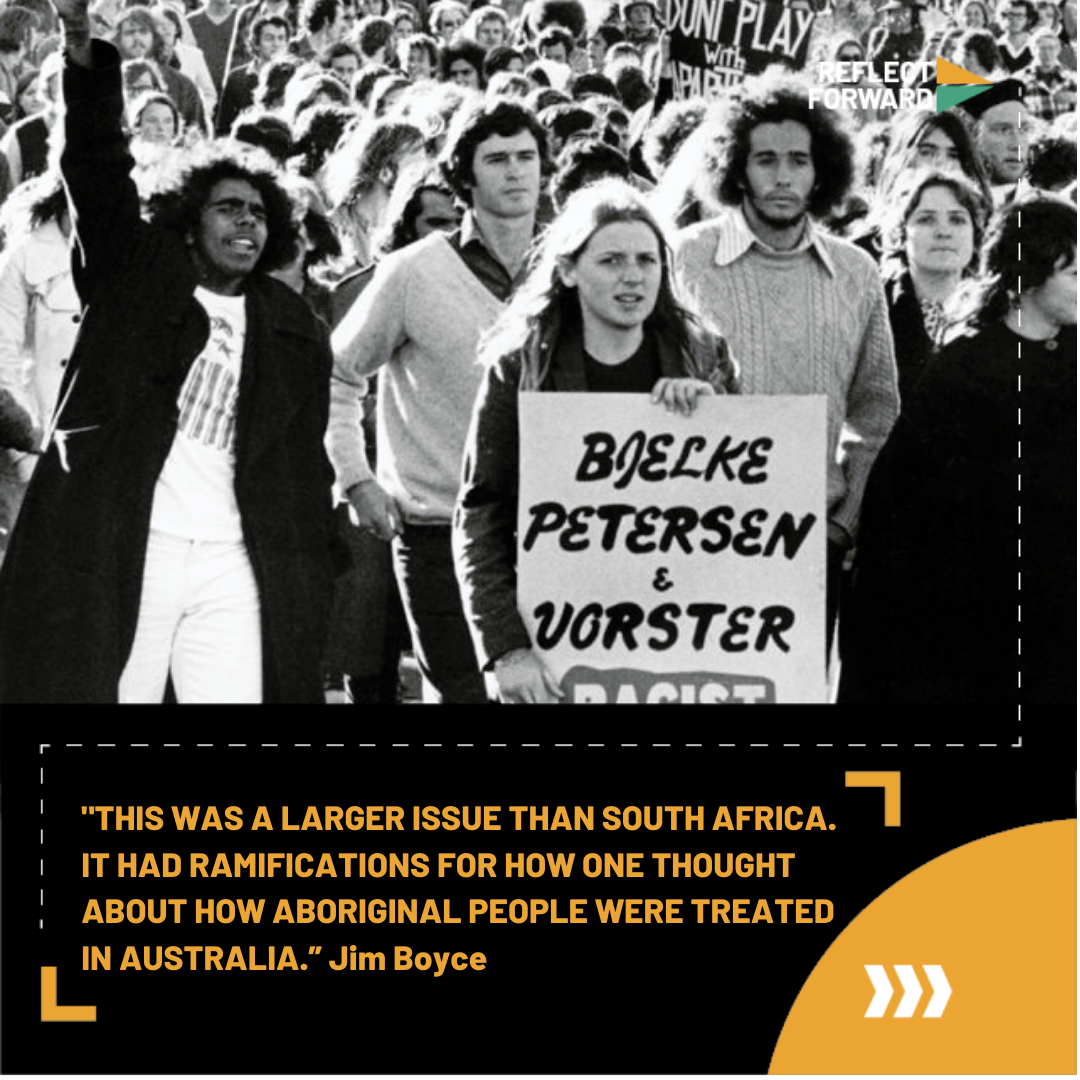The Wallaby Seven
Lloyd McDermott and the Wallaby Seven: The Wallabies who said no to apartheid.
Former rugby union athletes Lloyd McDermott and The Wallaby Seven played a pivotal role in the international anti-apartheid campaign, and built public momentum to fight racial injustice in our own backyard.
It was 1963, during the time of South Africa’s racist apartheid regime, and just one year after proud Mununjali and Wakka Wakka man Lloyd McDermott debuted in the Australian rugby union team, the Wallabies.
Their next tour was scheduled for South Africa, where it was impossible for an Aboriginal person to travel - unless they declared themselves an 'honorary white'. An unacceptable proposition to McDermott, he withdrew from the Wallabies.
South Africa’s apartheid would soon draw further stands against racism from Australia’s rugby union players.
The 1960s Wallabies tours of South Africa during the apartheid years left seven non-Indigenous players shocked at the treatment of Black South Africans. The players included Jim Boyce, Anthony Abrahams, Paul Darveniza, Terry Forman, Barry McDonald, Jim Roxburgh and Bruce Taafe. They would become known as The Wallaby Seven.
The Wallaby Seven went on to boycott the 1971 Springboks tour of Australia - a time when South Africa was still sending all white, racially selected teams to countries who would accept their players. Australian Prime Minister William McMahon called the Wallaby Sevens ‘national disgraces’, while opposition Leader Gough Whitlam spoke out against the tour.
Apartheid was a global issue, a touchstone around racism at the time. As well as the Wallaby Seven’s boycott, Australia’s decision to welcome the racially-selected Springboks sparked mass anti-apartheid demonstrations. Tens of thousands of campaigners clashed with governments, police, and rugby fans in protest of the tour.
Against this backdrop of unrest, Wallaby Seven Boyce recalled the words of the South African Minister for Justice, John Vorster, who would become Prime Minister. Vorster had proudly declared to Boyce during a tour that "no black man will ever wear the Springbok jersey."
When the South Africans came to Sydney for the Test, Boyce gave his old Springboks jerseys from tours to prominent Indigenous activists Gary Foley, Paul Coe, Billy Craigie and Gary Williams to wear to the demonstrations.
“This was a larger issue than just South Africa. It actually had ramifications for how one thought about how Aboriginal people were being treated in Australia and how their history had been treated in the past,” Boyce told The Point for SBS NITV.
Media photographed the activists in Boyce’s jerseys, holding signs echoing Vorsters words: “A black man will never wear the Springbok jersey.”
The images would play an iconic role in the 1971 anti-apartheid campaign and help to shine light on racial injustice right here in Australia - in particular the Aboriginal land rights struggle.
Twenty-five years on from apartheid’s fall in 1994, and almost fifty years on from the Springboks tour boycott and demonstrations, the South African team’s first ever Black captain, the inspirational Siya Kolisi joyfully raised the 2019 World Cup trophy: in his Springbok jersey.

